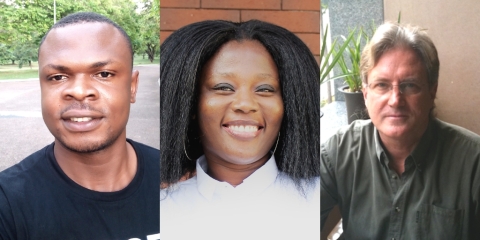
Journalists from Nigeria and the U.S. will receive special grants to involve audiences in real-time news gathering and storytelling of important news events. Two Nigerian reporters will explore the effect of oil spills on community health, while a U.S. journalist, commentator and author will show pivotal changes in Beijing over the past 20 years through a personal travelogue.
The two projects are winners of the recently launched ICFJ Alumni Reporting Grants, backed by Microsoft’s Modern Journalism program, that support data journalism and immersive storytelling. Each award includes $7,500 plus hands-on training in tools and techniques, and instruction in relevant Microsoft technologies.
Both projects are exploring how to integrate elements such as livestreaming to reach out to new audiences. “It’s an exciting opportunity for our alumni to experiment with ways to make their stories more immediate and engaging for audiences,” said Sharon Moshavi, ICFJ’s senior vice president of new initiatives.
Freelance journalist Kelechukwu lruoma and Per Second News business editor Ruth Olurounbi will use drone footage and lab testing to investigate the long-term health effects of repeated oil spills in the Niger Delta. Iruoma participated in ICFJ’s Reporting Fellowship on Migration and Climate for Nigerian Journalists in 2017. Olurounbi is a member of the Nigerian chapter of WanaData, a network of female journalists developed by ICFJ and Code for Africa that is driving digital storytelling across the continent.
As part of their investigation, they will work with health professionals to conduct lab testing on 50 people across Ogoniland, a kingdom in southern Nigeria’s Rivers State hit by the country’s first major oil spill in 1970. An average of 240,000 barrels of crude oil are spilled in the delta every year, according to the Nigerian Medical Journal. Studies link oil spills to cancer, childhood malnutrition and low fertility.
A journalist and author, Philip Cunningham has extensive experience in Asia and a background in television and documentary filmmaking. He worked as an ICFJ Knight Fellow in China from 2001 to 2002. Cunningham wants to use new storytelling tools to deepen understanding about Beijing and take viewers on a personal “tour” of major moments from the 1980s to the present day, using photos and video. He will measure the changes over time in a city that has transformed dramatically from a backwater to a major global player.
Microsoft’s modern journalism program is an initiative to help journalists thrive in the digital age. The immersive storytelling grants are the second phase of its ICFJ partnership: The first phase awarded two journalists funds and data journalism training.
To learn more, please visit our ICFJ Alumni Reporting Grants page, or contact ICFJ Program Officer Lori Ke at lke@icfj.org.
Have you participated in an ICFJ program? Sign up to receive emails for ICFJ alumni.